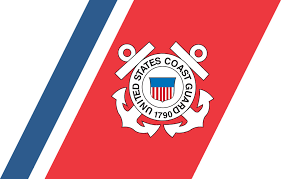SUBJECT: New Customs & Border Protection (CBP) In-Bond Processing and Preparation for the Port of New Orleans
BACKGROUND: In-bond movements of merchandise usually takes place as an Immediate Transportation (IT), Transportation and Exportation (T&E) or an Immediate Export (IE) and is documented on Customs Form 7512, “TRANSPORTATION ENTRY AND MANIFEST OF GOODS SUBJECT TO CUSTOMS INSPECTION AND PERMIT”. Instructions for the proper completion of CF 7512 was contained in Customs Directive 3240-036, which was abolished and not replaced until now. CBP Directive 3240-036A dated August 7, 2003 supercedes Customs Directive 3240-036.
ACTION: On October 20, 2003 the operational provisions of the new directive will become effective. Prior to October 20, 2003, CBP personnel will provide guidance and Instructions to the trade (Attachment) in an attempt to gain informed compliance. During this time period, CBP officers may reject shipments on CF 7512’s that do not meet the guidelines as set forth in the instructions. CBP local procedures as highlighted in this notice will ensure the trade a more uniform manner of processing in-bond documents while improving accountability and enforcement capabilities by mandating more complete information.
Port of Origin New Orleans: CBP officers at the port of New Orleans will review CF 7512 documents to ensure all required information is furnished and correct. In-bond documents not properly prepared or illegible will be rejected and returned to the preparer for corrective action. CBP officers will not be responsible for delay in shipments due to improperly prepared documents. In-bond cargo movements originating in New Orleans will not be allowed to move prior to CBP officers inputting all in-bond transactions into CBP automated systems. In-bond documents rejected for corrections or amendments must be presented to CBP on a new CF 7512 with the annotation, “ AMENDMENT” in bold lettering clearly visible to CBP officers. The “amended” CF 7512 must bear the same in-bond serial number as the original, and all corrections and amendments must be highlighted. A letter from the broker, filer or other interested party on letterhead must accompany the CF 7512 requesting and describing the corrections or amendments. In addition, documentary evidence of the corrections must be submitted with the CF 7512 and change request. In-bond shipments must be made available to CBP officers to verify information provided on the CF 7512 and to perform enforcement examinations as needed.
Port of Destination New Orleans: CF 7512’s arriving in the port of New Orleans must be presented to CBP officers within 2 working days of arrival. Validated in-bond documented must show physical location of merchandise. CBP officers will input in-bond arrival information promptly in the CBP automated system which will ensure the timely start of the General Order (G.O.) clock. CBP officers will inspect in-bond shipments as needed to verify information provided on the CF 7512 and to perform enforcement examinations as deemed necessary.
Port of Exportation New Orleans: Merchandise presented to CBP for exportation from the port of New Orleans on a CF 7512 must be certified for exportation. Certification of export in the CBP automated system will not occur until the merchandise is physically located where exportation can be reasonably assured. The port of New Orleans accommodates seaport, airport and rail locations. Merchandise should be under the physical control of the exporting carrier prior to certification. CBP officers may, as deemed necessary to inspect export shipments to verify information provided on CF 7512 and to perform export enforcement examinations.
Should you have any questions concerning the above procedures, please contact Supervisory CBP inspector Emile Davis of my staff at 504-464-0178.


